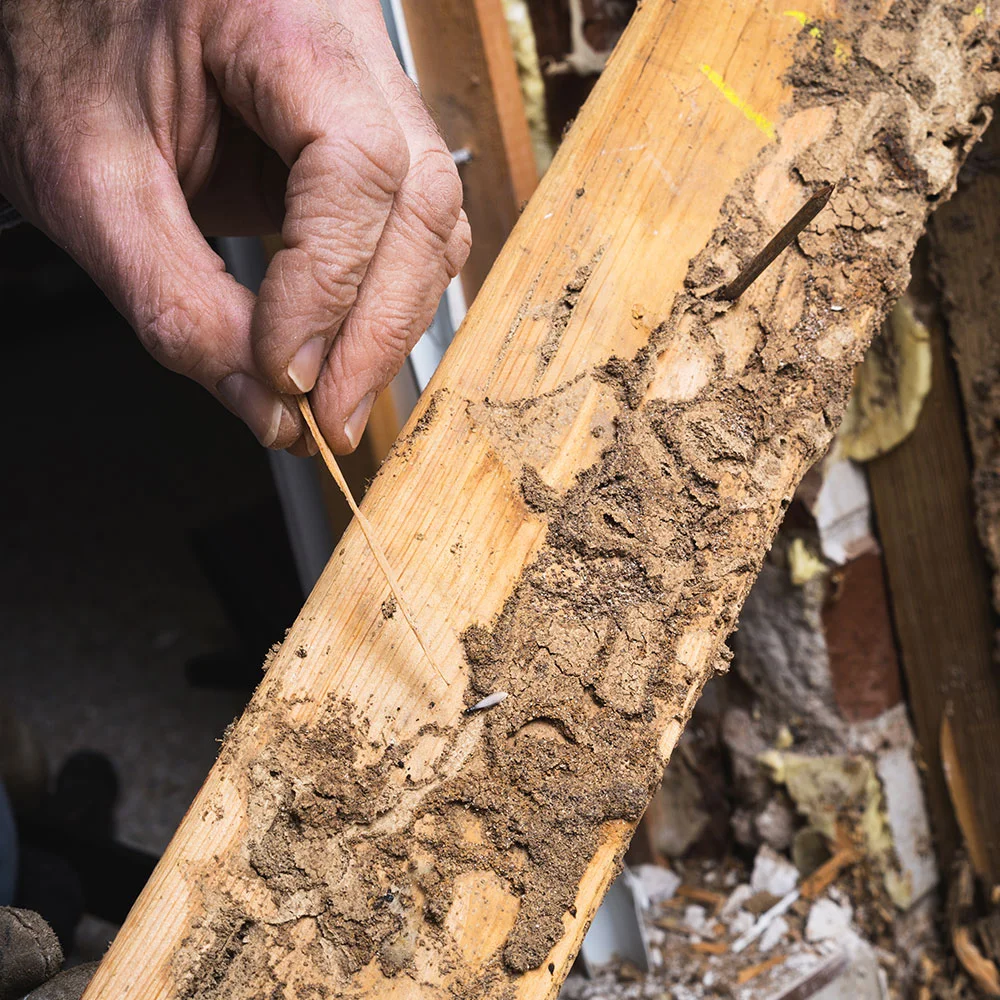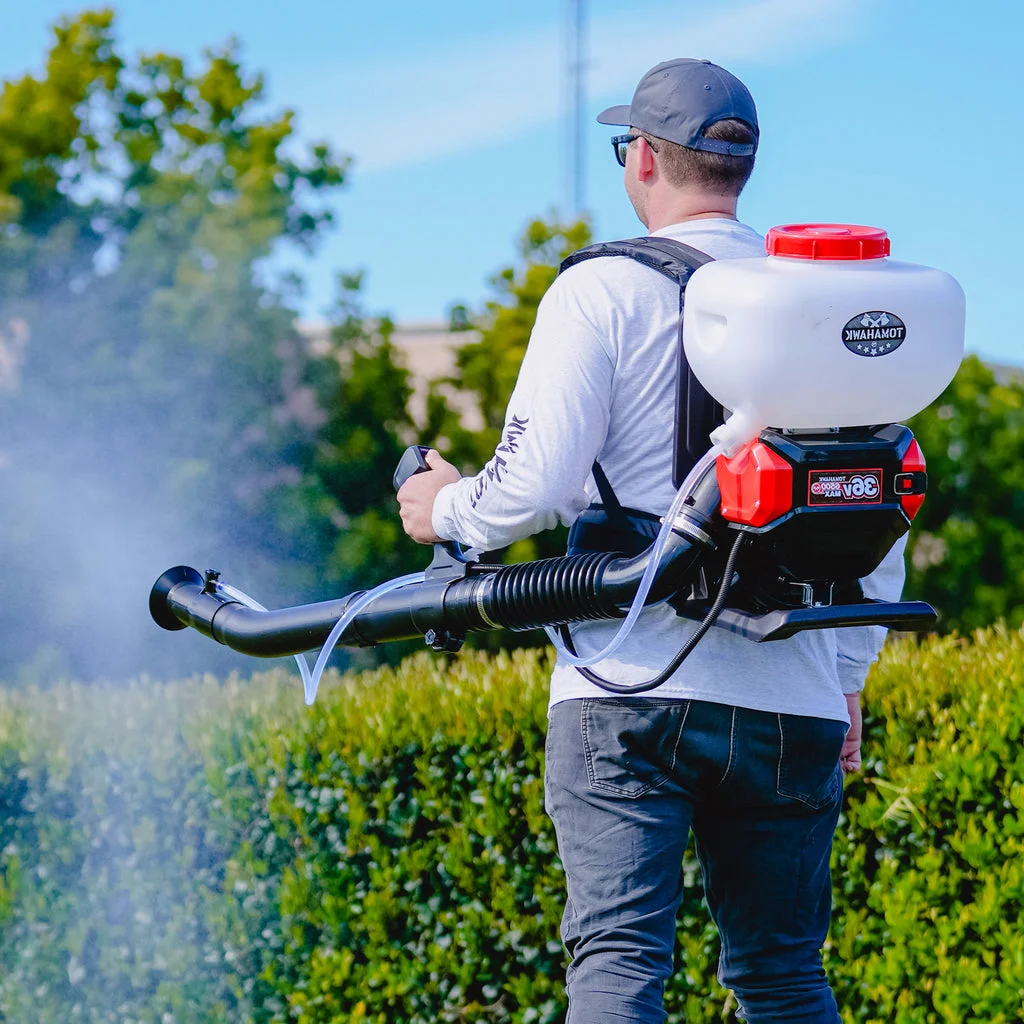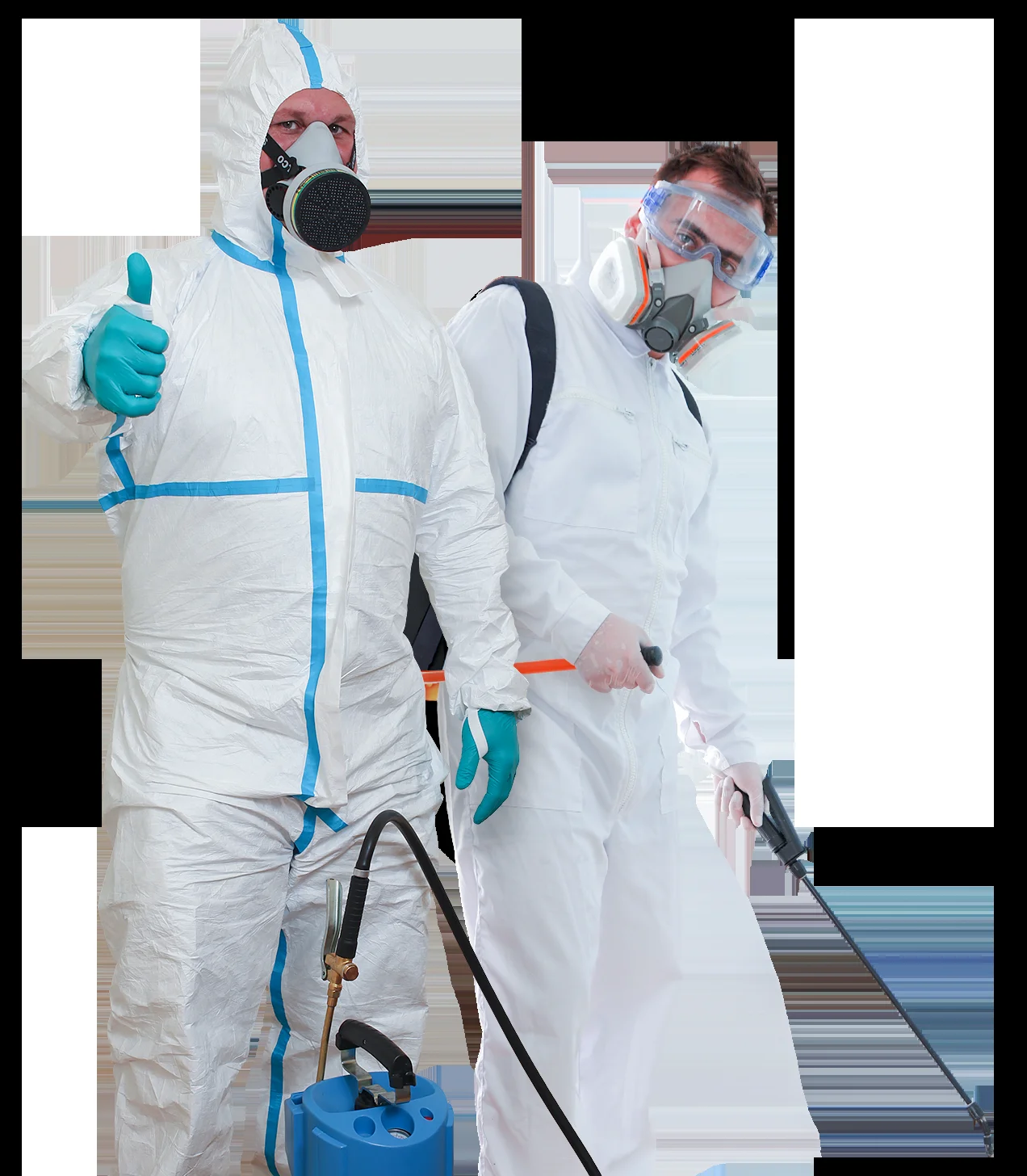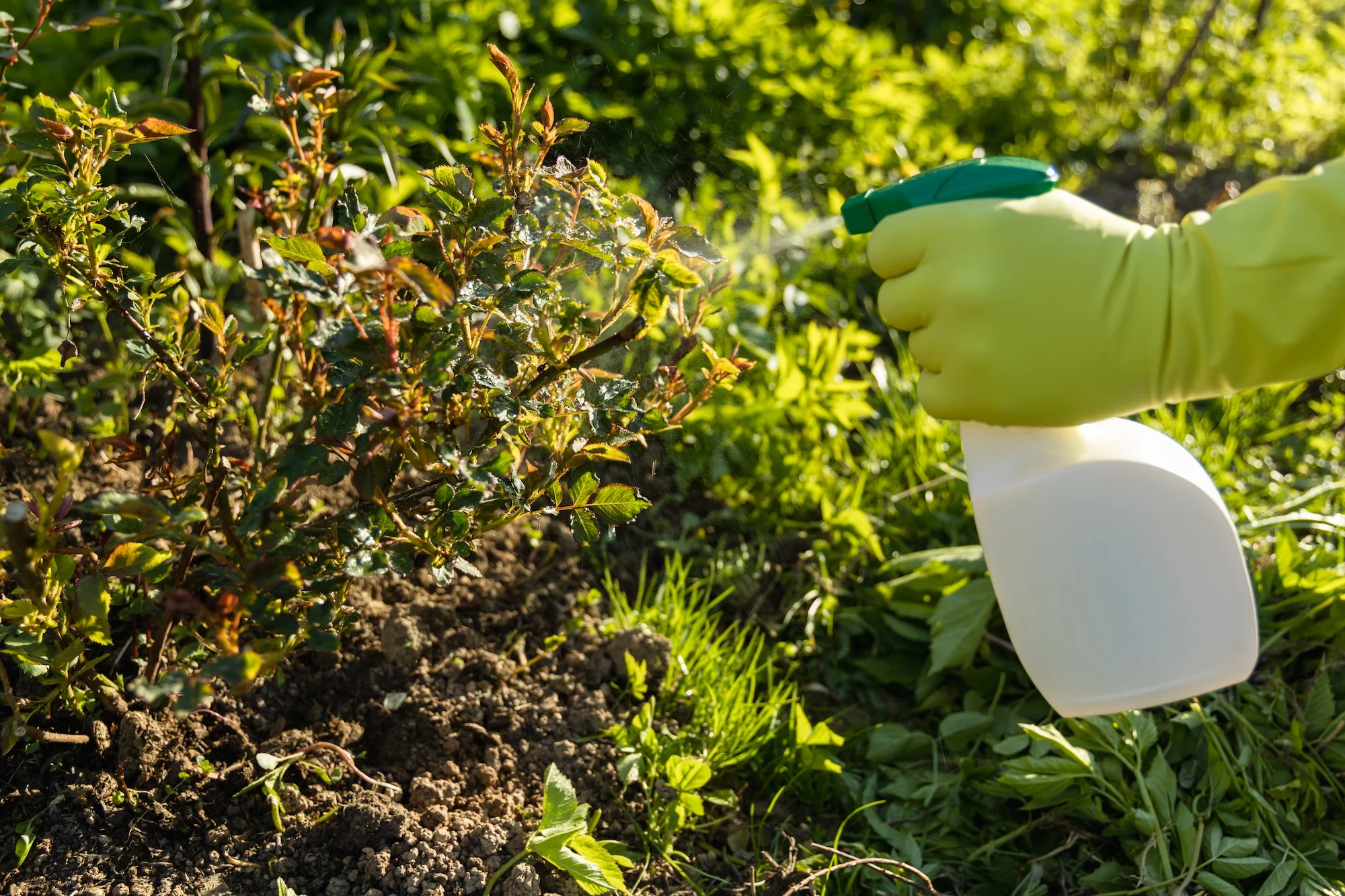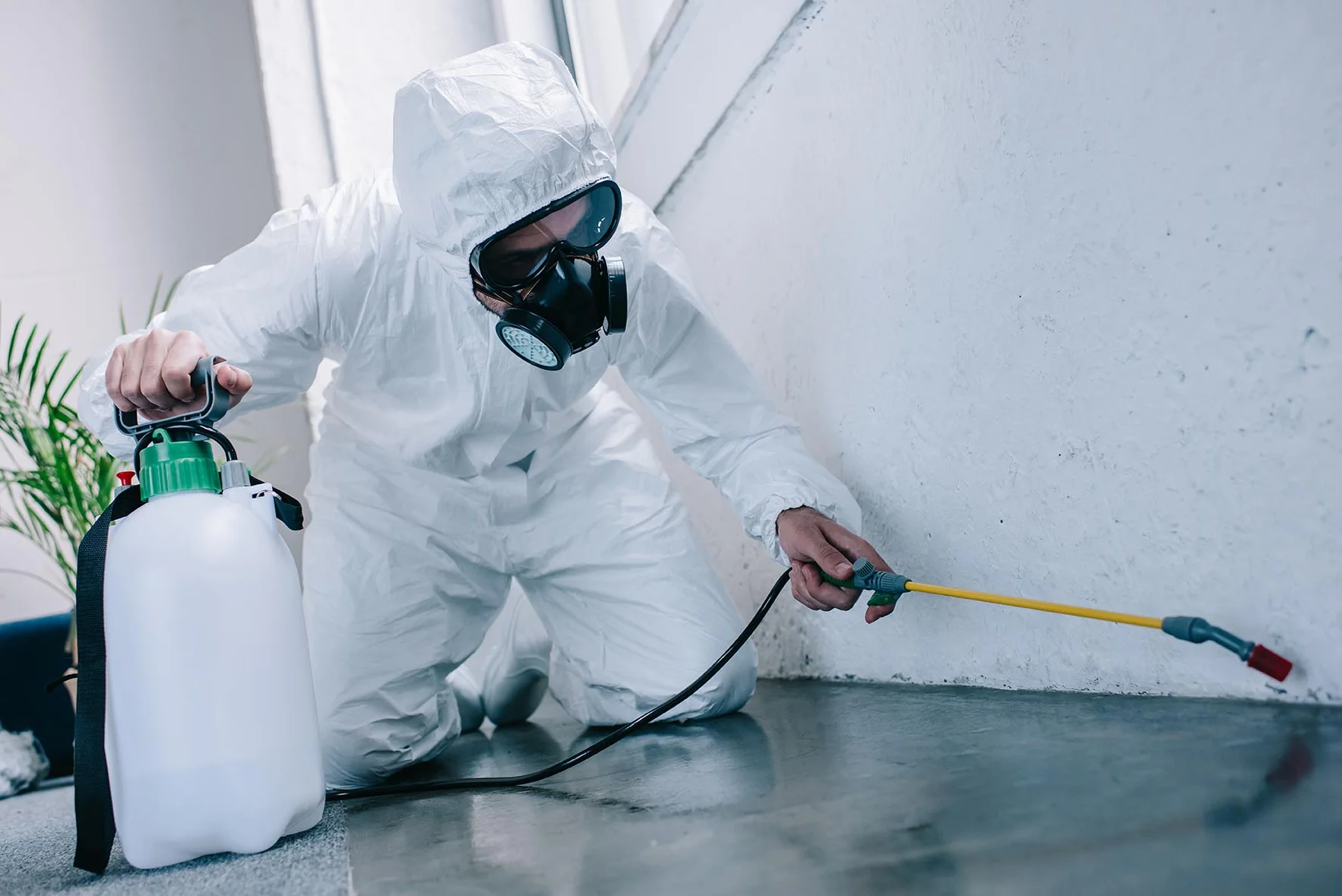From the Mississippi River lowlands in the west to the Great Smoky Mountains in the east, Tennessee's diverse landscapes create ideal environments for a wide variety of pests. The state's humid subtropical climate with hot summers and mild winters provides perfect conditions for year-round pest activity, while the four distinct seasons trigger predictable pest behavior cycles. Professional pest control in Tennessee requires understanding these regional differences – the forested mountains, fertile valleys, urban centers, and rural communities all face unique pest challenges that demand specialized knowledge and approaches.
Homeowners and businesses throughout Tennessee face persistent challenges from pest infestations that can damage property, compromise health, and disrupt daily life. That's why many residents rely on professional exterminators who understand the region's specific pest pressures. Local experts recognize that both preventive strategies and targeted treatments are essential to maintaining pest-free properties in Tennessee's pest-friendly climate. In this guide, we'll explore common Tennessee pest problems, effective management strategies including eco-friendly pest solutions, and why partnering with local professionals offers the most effective protection for your home or business.
Dealing with a pest emergency? Our Tennessee team provides
emergency pest control
24/7 and thorough
pest inspections to protect your property.
Contact us for prompt, reliable service!
Pest Control Challenges Specific to Tennessee
Tennessee's environment creates unique pest control challenges that require specialized knowledge and approaches. Here's why pest control in Tennessee demands tailored solutions:
-
Regional diversity Tennessee spans multiple ecological regions, from the Mississippi floodplains in the west to the Appalachian highlands in the east. This geographic diversity creates distinct pest profiles across the state. Memphis and West Tennessee battle termites and mosquitoes intensified by the moist lowlands, while Knoxville and East Tennessee face different challenges with invasive species and pests adapted to mountain ecosystems. The Nashville basin and middle Tennessee region present their own unique combination of urban and rural pest pressures.
-
Extended pest seasons Tennessee's mild winters, particularly in the western and central regions, mean many pests remain active nearly year-round. While northern states might experience winter die-offs that naturally reduce pest populations, Tennessee's climate allows insects like termites, cockroaches, and ants to maintain activity through much of the winter, especially in protected environments like homes and buildings. This extended activity period requires more vigilant, year-round pest management strategies.
-
High humidity and rainfall Tennessee's humid climate, with average annual rainfall exceeding 50 inches in many areas, creates ideal conditions for moisture-loving pests. This humidity supports large populations of mosquitoes, termites, cockroaches, and mold-feeding insects. The combination of warmth and moisture means wood-destroying organisms find ideal conditions throughout much of the year, while mosquito breeding sites develop quickly after rainfall events in summer and fall.
-
Diverse housing stock Tennessee's residential architecture ranges from historic homes in districts like Nashville's Germantown or Memphis' Victorian Village to modern subdivisions in growing communities like Murfreesboro and Collierville. Older homes often feature construction methods and materials that are particularly vulnerable to certain pests, while newer developments built on recently cleared land often experience surge pest pressure as displaced organisms seek new habitats.
-
Urban-wilderness interface Many Tennessee communities exist where developed areas meet forests, river corridors, or agricultural land, creating "edge habitats" where certain pests thrive. Properties in expanding areas around Nashville, Chattanooga, and Knoxville or vacation homes near the Great Smoky Mountains, Cherokee National Forest, or state parks often face heightened pressure from wildlife pests moving between natural and developed environments.
These factors make comprehensive, adaptable pest prevention particularly important for Tennessee property owners. Regular inspections and preventive treatments, combined with strategic interventions when needed, provide the most effective defense against the state's persistent pest challenges.
Common Pests in Tennessee
Tennessee's climate and diverse ecosystems support a wide variety of persistent pests. Here are the most common invaders that Tennessee homes and businesses encounter:
Termites
Termite inspection being performed in Nashville
Termites represent one of the most significant pest threats to Tennessee properties, causing millions of dollars in damage annually. Eastern subterranean termites are found throughout the state, with particularly high activity in the western and middle regions. These destructive insects build underground colonies and can remain hidden within walls and foundations, causing extensive damage before signs become visible.
Tennessee's combination of warm temperatures, high humidity, and long growing seasons creates ideal conditions for termite activity. Professional termite management typically includes thorough termite inspection, soil treatments to create protective barriers, monitoring systems to detect activity, and in some cases, targeted treatments to eliminate existing colonies. For structures already experiencing termite damage, specialized treatment protocols combined with repair recommendations help address both the infestation and its effects. Many Tennessee homeowners choose annual termite inspections and ongoing protection plans as essential investments in protecting their property's value.
Mosquitoes
Mosquito treatment in a Memphis residential property
With abundant rainfall, numerous waterways, and long, humid summers, Tennessee provides ideal conditions for mosquitoes. These biting pests not only create outdoor discomfort from spring through fall but also pose health risks as potential vectors for West Nile virus, La Crosse encephalitis, and other diseases that have been detected in Tennessee mosquito populations. Areas near the Mississippi River, Tennessee River, or the state's many lakes and streams often experience particularly heavy mosquito pressure.
Effective mosquito control in Tennessee typically combines treating resting areas in vegetation with addressing breeding sites around the property. Professional mosquito management programs often include monthly treatments during peak season (April through October in most areas), targeted larvicide applications for standing water that cannot be eliminated, and recommendations for reducing breeding habitats around homes and businesses. With Tennessee's extended mosquito season, many residents consider regular mosquito service essential for comfortably enjoying outdoor living spaces.
Brown Recluse Spiders
Treatment for brown recluse spiders in Knoxville
Tennessee lies in the heart of brown recluse spider territory, with this medically significant species found throughout the state. Unlike many pests that enter from outdoors, brown recluse spiders often establish themselves within wall voids, attics, closets, and storage areas, making them particularly challenging to control. Their potential to cause serious wounds through their bites makes these reclusive spiders a significant concern for many Tennessee residents.
Effective management of brown recluse spiders requires specialized knowledge and techniques. Professional treatment typically includes thorough inspection of likely harborage areas, targeted applications to cracks and crevices where spiders hide, the use of monitoring devices to track activity and effectiveness, and specific recommendations for reducing clutter and other conditions that provide shelter. For properties with confirmed infestations, comprehensive treatment programs often involve multiple visits to address the spider population through its entire life cycle, providing more reliable long-term results than one-time treatments.
Cockroaches
Tennessee's warm, humid environment supports several cockroach species that regularly invade homes and businesses. The German cockroach typically infests kitchens and bathrooms, while American cockroaches (often called "palmetto bugs" or "water bugs") commonly enter from outdoor harborage, particularly in urban areas and properties near water sources. Asian cockroaches, which resemble German cockroaches but fly readily toward lights at night, have become increasingly common in parts of Tennessee.
Beyond the disgust factor, cockroaches can spread bacteria, trigger allergies and asthma, and contaminate food and surfaces. Professional cockroach control typically involves a detailed inspection to identify harborage areas, followed by targeted bait and insect growth regulator applications that break the breeding cycle. For severe infestations, particularly in multi-unit buildings, more comprehensive approaches may be necessary, combining multiple treatment methods with ongoing monitoring to ensure complete elimination.
Rodents
As temperatures drop in fall and winter, Tennessee properties face increased pressure from rats and mice seeking shelter. House mice and Norway rats are common in urban and suburban areas throughout the state, while roof rats are more prevalent in some communities, particularly in West Tennessee. Rural properties often experience issues with deer mice entering outbuildings and homes, particularly in agricultural areas and near wooded land.
These persistent invaders can cause significant property damage by gnawing on electrical wiring (creating fire hazards), damaging insulation, and contaminating stored food and surfaces. Professional rodent control typically combines exclusion work to seal entry points, habitat modification to eliminate harborage areas, strategic trapping, and targeted baiting when necessary. For Tennessee properties, particular attention to foundation gaps, roof line access points, and utility penetrations provides essential protection during fall and winter when rodent invasion pressure peaks.
Eco-Friendly Pest Control Approaches
With Tennessee's abundant natural resources, including treasured waterways like the Mississippi and Tennessee Rivers and pristine areas like the Great Smoky Mountains, many residents and businesses prioritize eco-friendly pest solutions that effectively address pest problems while minimizing environmental impact. Modern integrated pest management (IPM) approaches provide effective control with reduced reliance on chemical treatments. This comprehensive strategy combines inspection, monitoring, habitat modification, exclusion, biological controls, and targeted applications of reduced-risk products only when necessary.
Many Tennessee pest control providers now offer green service options that provide effective pest management while protecting the environment. These programs often utilize botanical insecticides derived from plant oils, microbial products that target specific pests, and physical control methods like traps and exclusion techniques. For properties near sensitive areas like waterways, wildlife habitats, or organic farms, these eco-friendly approaches help maintain effective pest control while protecting Tennessee's natural heritage.
Tennessee Watershed Protection
Our Tennessee pest specialists are trained in watershed-friendly practices that protect the state's rivers, lakes, and streams while still providing effective pest management for your property.
Below is a comparison of different eco-friendly pest management approaches commonly used in Tennessee:
| Approach |
Benefits |
Best Applications |
| Habitat Modification |
Reduces conditions that attract pests; provides sustainable long-term solutions; decreases need for product applications.
|
Mosquito reduction through drainage improvement, rodent prevention through landscape management, cockroach control through moisture reduction.
|
| Physical Exclusion |
Prevents pest entry without chemicals; provides long-term protection; eliminates need for repeated treatments.
|
Rodent prevention in historic homes, sealing entry points against cockroaches, preventing wildlife entry in rural properties.
|
| Botanical Treatments |
Derived from plant compounds; typically lower toxicity; break down rapidly in the environment.
|
Perimeter treatments for crawling insects, spider control in living spaces, ant management around gardens and play areas.
|
| Targeted Baiting |
Minimal product use; focuses on entire colonies rather than individuals; reduced environmental exposure.
|
Cockroach control in kitchens, termite management around structures, ant control for both indoor and outdoor colonies.
|
| Biological Controls |
Uses natural enemies or targeted microbials; minimal environmental impact; sustainable for long-term management.
|
Mosquito management in standing water, garden pest control, specialized applications for landscape pests.
|
In Tennessee's diverse environments—from urban Memphis to suburban Nashville to rural communities in East Tennessee—these eco-friendly approaches can be tailored to address specific pest challenges while protecting the state's natural resources. Professional pest management providers typically begin with a comprehensive inspection to identify the most environmentally appropriate solutions for each unique situation.
Residential vs Commercial Pest Control
Residential Pest Protection
Tennessee homes face diverse pest challenges based on their location, architecture, and surrounding environment. Residential pest protection programs typically focus on creating defensive barriers while ensuring treatments are safe for families, pets, and the environment. Many Tennessee homeowners opt for quarterly service plans that address seasonal pest cycles, with additional attention during high-pressure periods like mosquito season or fall rodent invasions.
From historic homes in districts like Germantown in Memphis or East Nashville to modern subdivisions in Franklin or Farragut, residential service begins with a comprehensive inspection that identifies current pest issues, potential vulnerabilities, and conditions that might attract pests. Treatment plans are then customized for each property, taking into account specific construction features, nearby habitat, and seasonal pest pressures. For vacation properties in the Smoky Mountains, along TVA lakes, or in other recreational areas, specialized programs address the unique challenges of seasonal occupancy and wilderness proximity.
Commercial Pest Control
Tennessee businesses require specialized pest management that addresses industry-specific needs while meeting regulatory requirements. Commercial pest control programs are designed to protect reputation, prevent product contamination, and ensure compliance with health codes and industry standards. From Nashville's hospitality industry to Memphis logistics centers to Knoxville's healthcare facilities, each business sector faces distinct pest management challenges requiring tailored approaches.
Commercial service typically involves more comprehensive documentation, including detailed service reports, monitoring device placement maps, and trend analysis to identify and address emerging issues before they become problems. Many Tennessee businesses implement Integrated Pest Management programs that emphasize prevention through improved sanitation, exclusion, and structural modifications, with targeted treatments only when necessary. The state's thriving food production industry, from bakeries to distilleries to packaged foods, requires particularly rigorous pest management protocols to maintain quality standards and regulatory compliance.
From residential pest protection plans to customized
commercial pest control solutions, we provide expert services throughout Tennessee –
contact us today to protect your property!
Why Choose Local Tennessee Pest Control Experts?
Working with pest control professionals who understand Tennessee's unique challenges offers significant advantages. Here's why partnering with local experts provides better results for your home or business:
-
Regional knowledge Tennessee spans diverse ecological regions from the Mississippi Delta to the Appalachian Mountains, each with distinct pest profiles. Local experts understand these regional differences—from the termite pressure in Memphis to the unique mountain pests in Gatlinburg. This specialized knowledge leads to more accurate identification and more effective, targeted treatment strategies than one-size-fits-all approaches from national companies.
-
Seasonal expertise Tennessee's seasonal patterns significantly impact pest behavior and treatment effectiveness. Local professionals understand these cycles intimately—when brown recluse activity peaks, when termites typically swarm in different regions, and when to implement preventive treatments before seasonal pests become active. This timing precision maximizes effectiveness while often reducing the total amount of product needed.
-
Construction familiarity Tennessee's diverse architectural styles—from historic antebellum homes to mid-century neighborhoods to modern construction—create varied pest vulnerabilities. Local professionals understand common construction methods used throughout the state, the typical entry points and harborage areas in different building styles, and how to effectively protect these structures while respecting their unique characteristics.
-
Regulatory compliance Local experts stay current with Tennessee's environmental regulations and treatment requirements, ensuring that pest management approaches comply with state-specific guidelines. This regulatory knowledge is particularly important for commercial clients facing health inspections or industry audits, as well as for treatments near environmentally sensitive areas like waterways or protected lands.
-
Quick response capability When facing urgent situations like brown recluse infestations, wasp nests near entrances, or rodent intrusions, local providers can respond quickly with technicians familiar with your area. This rapid response capability is vital for emergency pest control situations that require immediate attention to protect family, employees, customers, or property.
By choosing local professional exterminators who understand Tennessee's unique conditions, you get more effective, responsive service tailored to your specific pest challenges and property needs—all from providers who live in and understand the communities they serve.
Don't let pests threaten your Tennessee property. Our local experts deliver effective pest control in Tennessee with customized solutions –
schedule your inspection today!
Top Cities for Pest Control in Tennessee
Different regions across Tennessee face varying pest challenges based on their geography, development patterns, and local environments. Here are some key Tennessee cities and the unique pest management challenges they face:
Nashville
As Tennessee's capital and fastest-growing city, Nashville faces diverse pest challenges influenced by its riverfront location, historic districts, and expanding development. The Cumberland River corridor creates habitat for mosquitoes and moisture-loving pests, while established neighborhoods like East Nashville and Germantown experience different challenges than newer developments in areas like Antioch and Bellevue. The city's older homes often harbor brown recluse populations, while commercial districts face challenges with cockroaches and rodents. Nashville's restaurant and hospitality industry requires particularly vigilant pest management to maintain health standards and protect visitor experiences in this tourist-oriented economy.
Memphis
Memphis' location on the Mississippi River and its humid subtropical climate create intense pest pressure, particularly for termites, mosquitoes, and cockroaches. The city's historic neighborhoods in areas like Midtown and Cooper-Young face different pest challenges than newer suburbs in Germantown and Collierville. Memphis experiences some of the state's most active termite pressure, requiring vigilant monitoring and prevention, especially in older properties. The city's logistics and warehouse sector, critical to the regional economy, demands specialized pest management approaches that protect stored goods and comply with shipping regulations, particularly as the distribution industry faces increasing scrutiny over potential pest transportation.
Seasonal Pest Guide for Tennessee
Spring (March-May)
- Termite swarms emerge
- Ant colonies become active
- Mosquito breeding begins
Recommendation: Schedule annual termite inspection and establish perimeter protection before summer pest season.
Summer (June-August)
- Mosquitoes reach peak activity
- Brown recluse spiders become more active
- Cockroach populations explode
Recommendation: Maintain regular mosquito treatments and monitor for stinging insect nests around structures.
Fall (September-November)
- Rodents seek indoor shelter
- Brown marmorated stink bugs invade
- Asian lady beetles cluster on sunny walls
Recommendation: Seal entry points and implement rodent prevention before temperatures drop.
Winter (December-February)
- Rodent activity intensifies indoors
- Overwintering pests remain in wall voids
- Indoor spider sightings increase
Recommendation: Focus on indoor pest management and prepare for spring termite season.
What Our Tennessee Clients Say
"After finding brown recluse spiders in our Nashville home, we were terrified for our young children. Their comprehensive treatment eliminated the infestation completely, and their quarterly maintenance has kept our home spider-free for two years now. Their technicians are incredibly knowledgeable and took time to educate us about prevention."
- Jennifer R., Nashville
★★★★★
"The mosquitoes in our Memphis backyard made summer evenings unbearable until we started their mosquito treatment program. Now we can finally enjoy our outdoor space without being eaten alive. We've recommended their service to everyone in our neighborhood!"
- Michael T., Memphis
★★★★★
"As a restaurant owner in Chattanooga, pest prevention is critical to our reputation. Their commercial service has kept our kitchen completely pest-free for over two years. The detailed documentation they provide has been invaluable during health inspections, and their discreet service never disrupts our customers."
- David L., Chattanooga
★★★★★
Frequently Asked Questions
How often should Tennessee homeowners schedule pest control services?
Most Tennessee homes benefit from quarterly pest control service to address our state's year-round pest pressure and distinct seasonal cycles. This typically includes a comprehensive spring treatment as insects become active, summer protection focusing on mosquitoes and other warm-weather pests, fall prevention targeting rodents and overwintering insects, and winter maintenance for ongoing indoor protection. However, specific circumstances might require different schedules—properties with brown recluse issues often need more intensive initial treatment followed by regular monitoring, while homes near water bodies might benefit from more frequent mosquito treatments during summer months. During your initial inspection, our technicians will recommend an optimal service schedule based on your property's location, construction features, surrounding environment, and specific pest history.
What makes brown recluse spiders so difficult to control in Tennessee homes?
Brown recluse spiders present unique control challenges in Tennessee homes for several reasons. Unlike many pests that enter from outdoors, brown recluse spiders often establish themselves deep within a home's structure—inside wall voids, attics, closets, and undisturbed storage areas—making them difficult to reach with conventional treatments. They're extremely resilient, capable of surviving months without food or water, and their flattened bodies allow them to hide in tiny cracks and crevices. Tennessee's climate is particularly favorable for these spiders, with many homes harboring established populations that have been present for years or even decades. Adding to the challenge, brown recluse spiders don't readily walk across fresh pesticide applications like many insects, making traditional perimeter treatments less effective. Successful management requires a comprehensive approach that combines specialized treatment methods targeting harborage areas, ongoing monitoring with sticky traps, careful decluttering to eliminate hiding spots, and regular follow-up inspections. For homes with confirmed infestations, we typically recommend a more intensive treatment protocol followed by quarterly maintenance to provide long-term protection against these persistent arachnids.
How do you prevent termites in Tennessee's humid climate?
Preventing termites in Tennessee's humid climate requires a multi-faceted approach tailored to our region's specific challenges. Our comprehensive termite prevention strategy begins with a thorough property inspection, focusing on vulnerable areas including crawl spaces, basements, attached porches, and soil-to-wood contact points that are particularly common in Tennessee homes. For existing structures, we typically recommend installing a protective soil treatment barrier around the foundation using specialized termiticides designed to withstand our state's heavy rainfall patterns. For many homes, particularly in high-pressure areas like Memphis and West Tennessee, this is complemented with targeted bait station systems strategically placed around the property to intercept foraging termites before they reach your home. Moisture management is crucial in our humid environment, so we help identify and address conditions that might attract termites—improving drainage away from foundations, repairing leaky plumbing, ensuring proper ventilation in crawl spaces, and maintaining appropriate clearance between soil and wooden structural elements. For new construction or renovation projects, we offer pre-treatment services that provide protection from the start. Most importantly, we recommend annual professional termite inspections for all Tennessee homes, as early detection is key to preventing significant damage. Our termite protection plans include this crucial annual inspection along with a renewable warranty that provides peace of mind and potential coverage for damage repairs should termites breach the protective barriers—an essential consideration in Tennessee's termite-friendly environment.

